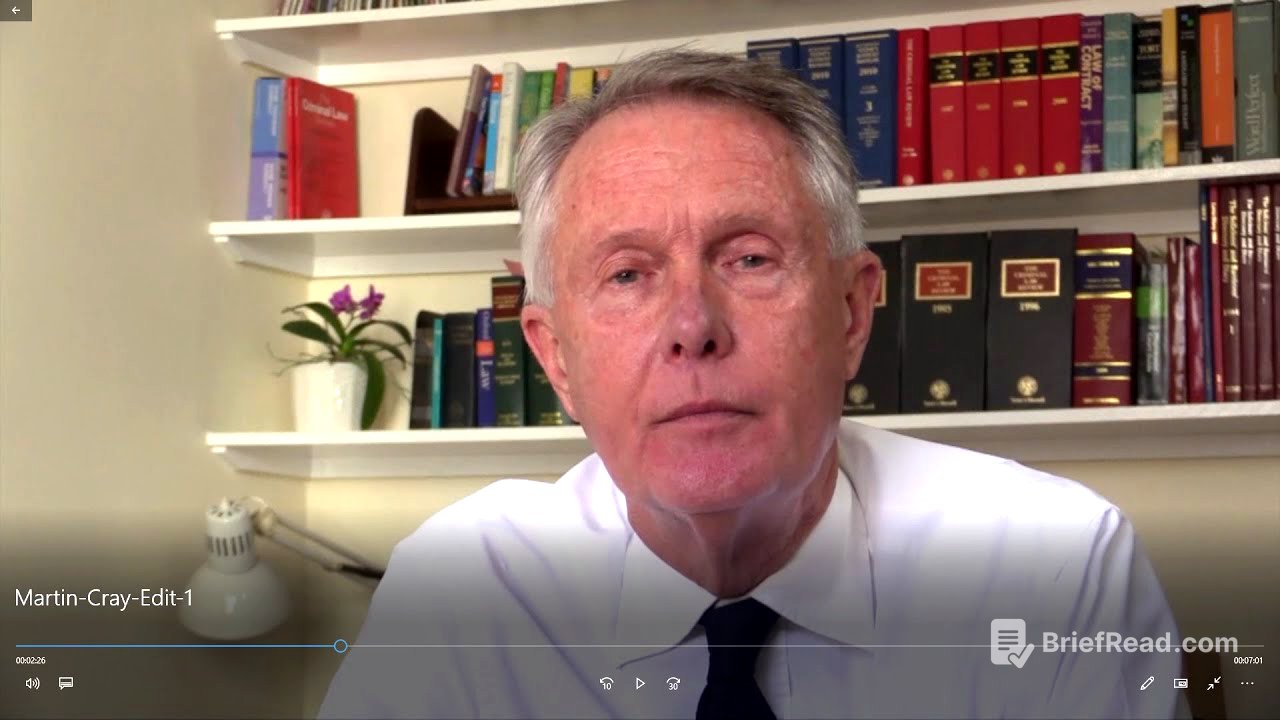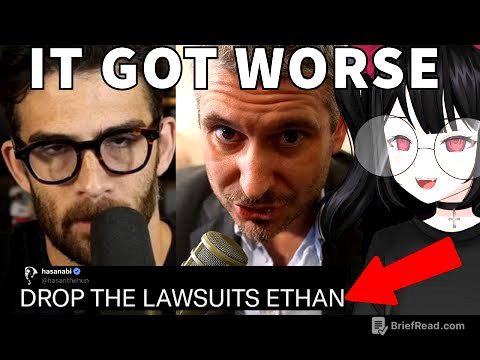TLDR;
This video stresses the critical importance of having a specialist criminal solicitor present if the police ask to interview you. It highlights that a police interview is not a simple fact-finding exercise but a strategic process designed to gather evidence for a conviction. The speaker warns that common sense and conversational norms do not apply, and the police are highly trained to elicit specific statements that can be used against you. The video advises against the common misconception that an interview is just to "set the record straight" and emphasises the complexity of understanding your rights and potential defences without legal expertise.
- Police interviews are strategic, not just fact-finding.
- Common sense doesn't apply; police are trained to get specific answers.
- Always have a specialist criminal solicitor present.
Introduction: The Seriousness of a Police Interview [0:00]
The video begins by addressing the worry that arises when the police request to speak with you, whether it's expected or a complete surprise. It establishes that a police interview is a crucial stage in any investigation, often more decisive than one might think. Despite police assurances that it's merely a fact-finding exercise to determine the next steps, the reality is that the interview is designed to build a case against you.
The Real Purpose of a Police Interview [0:47]
The speaker explains that the police already understand the legal requirements of the alleged offence and are looking to gather specific statements to fulfil those requirements. They need you to confirm details like your presence at the scene, your actions, and your state of mind, which can be critical for potential defences like self-defence. Any inconsistencies with possible statutory defences can significantly weaken your case.
Why You're Out of Your Depth [3:02]
The video emphasises how unprepared most people are for a police interview. Unlike trained detectives who conduct interviews regularly, you likely lack experience and knowledge of the relevant laws and procedures. Police officers use sophisticated techniques to elicit information, and you may unknowingly say things that can be misinterpreted or used against you later.
The Myth of "Setting the Record Straight" [5:28]
The speaker debunks the common suggestion that an interview is simply an opportunity to clarify the situation and that you don't need a solicitor if you've done nothing wrong. He highlights the complexity of the caution given by the police, where refusing to answer questions can be used against you in court. Deciding whether to answer questions is a complicated matter that requires expert advice.
The Importance of Legal Representation [6:37]
The video argues that even a lawyer facing a personal investigation would not answer police questions without their own solicitor present. The speaker underscores the intimidating environment of a police custody block and the stress of knowing the interview's outcome could lead to serious charges. This heightened stress can impair your ability to answer questions effectively, making legal representation essential.
Conclusion: Seek Specialist Advice [8:27]
The speaker concludes by strongly advising against attending a police interview without a specialist criminal solicitor with extensive experience. Given the vast range of potential criminal offences, seeking tailored advice from a solicitor is the best course of action. He offers his contact information, encouraging viewers to call for assistance.









